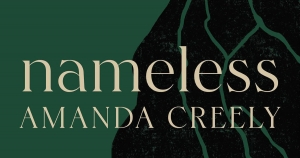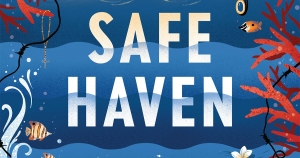Patrick Allington
‘But I think there’s sometimes more emotion in a whisper. It doesn’t cause a fuss.’ So says Teller, the narrator of Bendigo writer Amanda Creely’s novel Nameless. Her story, Teller tells readers more than once, is not nice. She is right: set in an unnamed and unrecognisable country and in a world that seems not to have sophisticated technologies for war or peace, Nameless is the story of everyday citizens facing an invasion by a hostile, brutal, and powerful neighbouring army.
... (read more)Patrick Allington reviews ‘Safe Haven’ by Shankari Chandran
You need to look closely at the cover of Shankari Chandran’s novel Safe Haven to notice the sharp edges of the deceptively inviting image it depicts: the handcuffs, the barbed wire, the boat that seems to sit on top of the waves and yet be at the bottom of the sea, and the rebuke contained in the book’s title.
... (read more)Patrick Allington reviews 'A Better Place' by Stephen Daisley
Early in Stephen Daisley’s novel about World War II and postwar years, A Better Place, a New Zealand soldier called Roy Mitchell tells a lieutenant they must do something terrible: ‘C’mon boss, we got no choice here.’ This sentiment of compulsion – and this acceptance of the unacceptable – is symptomatic of many of the circumstances Roy endures and of the way he fights, survives, and keeps going across several theatres of war and into the peaceful future he must navigate with his head full of memories.
... (read more)Patrick Allington reviews ‘The Sun Walks Down’ by Fiona McFarlane
Early in The Sun Walks Down, Mary Wallace – mother to six-year-old Denny, who has gone missing in a dust storm – throws her husband a ‘general look of bafflement at having found herself here, in this place, with these people’. It’s a symptomatic moment early in a novel that contains myriad displays of perplexity by various characters – at each other, at situations they create or must navigate, at the meaning of life.
... (read more)Patrick Allington reviews 'Goodnight, Vivienne, Goodnight' by Steven Carroll
Early in Steven Carroll’s novel Goodnight, Vivienne, Goodnight, a middle-aged woman contemplates her own existence: ‘Vivienne, Vivie. Viv. Now distant, now near. Who was she? The Vivienne now sitting in the gardens of Northumberland House, Finsbury Park, is contemplating the question.’ This Viv is Vivienne Haigh-Wood, the first wife of T.S. Eliot – or Carroll’s fictional rendition of her. Northumberland House is an asylum where, by 1940, Viv has lived for several years. Her previous actions include not accepting the end of her relationship with Eliot, dabbling in fascism (‘Did you tell him I just liked the uniform?’), and asking a police officer at five one morning if it’s true her husband has been beheaded. Institutionalised, she now lives in quiet defiance of other people’s perceptions and diagnoses of her. And with the help of her friend Louise and a group called the Lunacy Law Reform Society, she is about to do a runner.
... (read more)I appreciate critics who enter into a conversation with a book and who draw upon curiosity, wonder, and deep thinking to judge. Maria Tumarkin writes magnificently about writers and books.
... (read more)‘What is the use of saying, “Peace, Peace” when there is no peace below the diaphragm?’ asks Chinese writer Lin Yutang in The Importance of Living (1937). The subject of food and its manifestations – sustenance, communion, gluttony, longing – has claimed a place in the books of every era and genre, from heavenly manna in the Book of Exodus to starving gladiators in Suzanne Collins’s multi-billion-dollar The Hunger Games franchise. Writers as varied as Marcel Proust and Margaret Atwood have prioritised this theme in their work.
... (read more)ABR asked a few colleagues and contributors to nominate some books that have beguiled them – might even speak to others – at this unusual time.
... (read more)Patrick Allington reviews Bodies of Men by Nigel Featherstone
From its raw and revelatory prologue, Nigel Featherstone’s novel Bodies of Men offers a thoroughly humanising depiction of Australians during World War II. In telling the story of two soldiers, William – too young to be a corporal – and his childhood friend ...
... (read more)To celebrate the best books of 2017 Australian Book Review invited nearly forty contributors to nominate their favourite titles. Contributors include Michelle de Kretser, Susan Wyndham, James Ley, Geordie Williamson, Jane Sullivan, Tom Griffiths, Mark Edele, and Brenda Niall.
... (read more)







